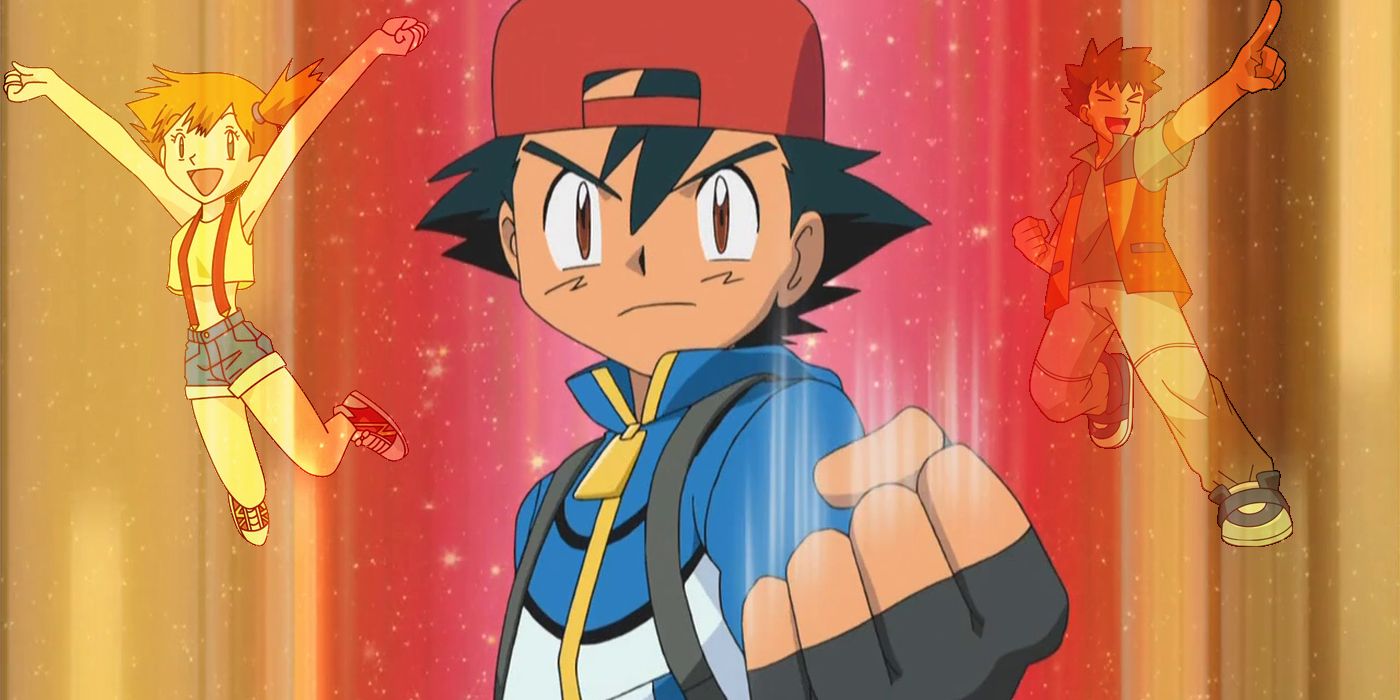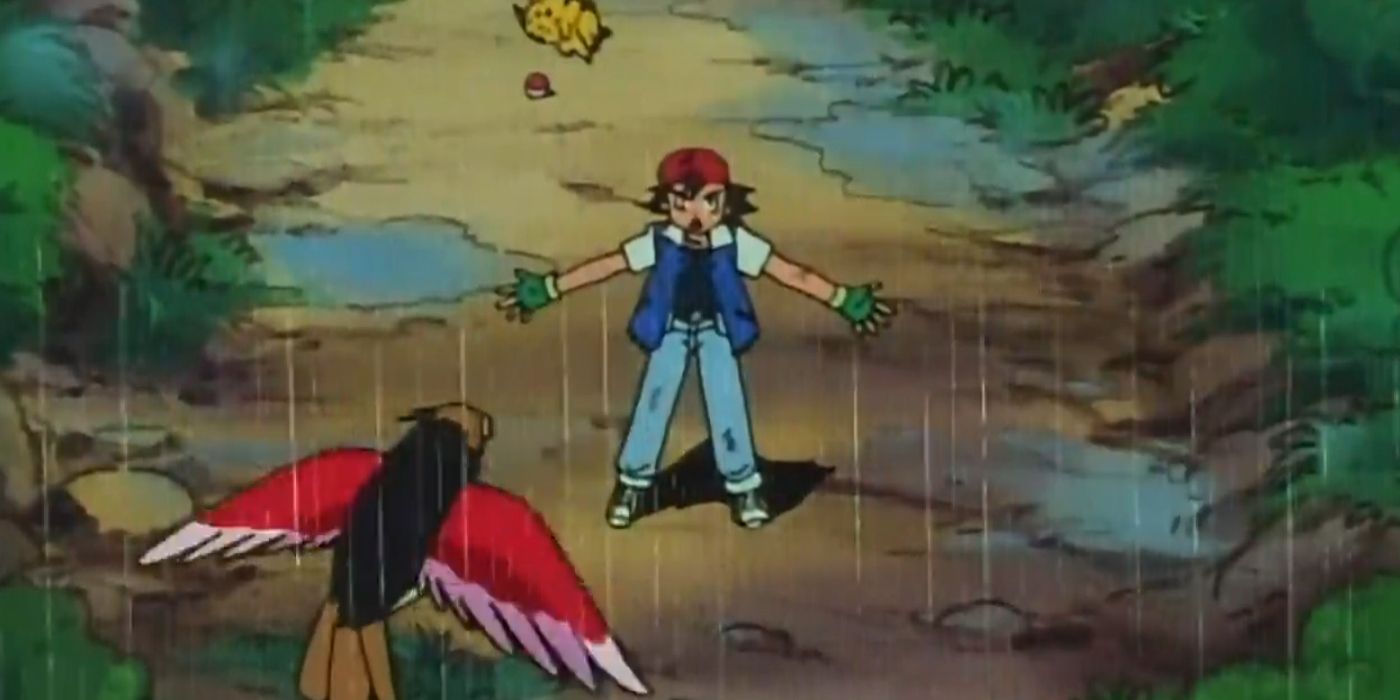
Like many others who grew up in the early 2000s, I've always had a certain nostalgic affection for Pokemon. In fact, as a kid, I really loved the series - until 2006's Generation IV (Pokémon Diamond & Pearl), I collected all the games and always kept an eye out in thrift stores looking for VHS tapes of anime that I could watch at home. To this day I can't explain it, but I always feel compelled to say that two of my favorite games of all time are Pokémon Coliseum and Pokemon Channel. I vividly remember rummaging through my small, circular folder of GameCube discs all the time, excitedly digging them both out to play.
Truth be told, though, at a certain point, I started to dislike Pokemon for anything other than nostalgia - and I couldn't see how people who grew up with the franchise like I did could enjoy it for any other reason. Later in life I would get into game series like Person and Shin Megami Tenseistrongly recommending them to friends and saying they made Pokémon, but better. On some level, when I started to really like anime, I even started to resent it. Pokemonfrom the anime, which I considered stereotypical and childish. But recent circumstances have led me to give the franchise another chanceand one small detail made me understand everything immediately.
Ash's journey with Pikachu got off to a bad start
PokemonThe first episode is much better than you think
Surely, like me, you can perfectly remember the basic effort of the first episode of Pokemon. Ash Ketchum, the young aspiring Pokémon trainer from Pallet Town, falls asleep excitedly while watching Professor Oak's TV show; he dreams of having his first Pokémon; he wakes up late. When he shows up at Professor Oak's lab, Oak scolds him for being late, and Ash is forced to select Pikachu. Pikachu dislikes him at first and refuses to enter a Poké Ball, some comic relief ensues with Ash and Oak being shocked, while Oak lets out some of his trademark dumb puns. If you're like me, then you vaguely remember that after this, Ash and Pikachu team up. The big question is how they related to each other.
This is the detail that made all the difference for me. I forgot why the two came together. As Pikachu stubbornly refuses to make any progress with Ash despite his apparent sincerity, the two end up in the middle of a pack of angry Spearows. Ash stands up against the Fearows to protect Pikachu, slowly but surely winning Pikachu's affection. It's a big moment for two reasons. Firstly, it made it clear how much Ash really cared about Pikachu and Pokémon in general. Secondly, it made Ash and Pikachu start to feel like a real, organic friendship rather than a friendship between a Pokémon and its trainer.
Many people didn't like Ash very much because his presence didn't reflect Pokemongames, but this is also an insight into how thoughtful the story is. It's easy to forget how radical the decision was to pair Ash with Pikachu instead of one of Generation I's conventional starters. Pokemon Red & BluePikachu is a relatively uncommon Pokémon only found in the Viridian Forest. Pokémon is an early look at the games, but without the context of the anime, it doesn't stand out any more than, say, a Clefairy would. In hindsight, this clearly demonstrates that the series was working on a level that I always failed to recognize. It's also probably part of the reason why the franchise has been so successful. A dark marathon based on a forgettable protagonist who just collects Pokémon by the book would be downright dark.
Pokémon has always had an easy-to-forget kind of heart
That's why it became so successful
At the very least, this would certainly end the relationship between Pokémon and their trainers, which provided Pokemonlaid some groundwork to gain a foothold when, say, Mewtwo showed up to free Pokémon in Pokémon: the first movie. That kind of heart and genuine bond permeates many of Pokémon's early episodes. Now, I don't know how many other early 2000s kids like me grew up playing Zoo Tycoon and watched Animal Planet, but as a child I had a sincere love for animals. When I revisited PokemonI saw that feeling of love reflected back and suddenly everything started to fall into place for me in terms of my childhood interests.
Of course, eventually Pokemon It has become very stereotypical. But its first few episodes are a genuine attempt to take a basic concept — a random kid without a specific name goes on a loosely defined adventure to "catch 'em all" — and turn it into something worthy of total, unflinching fandom. Part of this necessarily involved bringing out an emotional side of the adventure that wouldn't otherwise be evident. The first few episodes are full of this kind of emotional appeal and it works incredibly well. Speaking of Mewtwo, PokemonThe anime uses Mew to follow this line.
Consider Charmander who is rushed to the Pokémon Center while his flame is in danger of dying in PokemonThe best episode of Squirtle, or the treacherous Squirtle Squad, which their owners abandoned. Some episodes address family ties, such as "The Kanghaskhan Kid" (episode #34), while others address abandonment, separation, and reconciliation, such as Otoshi's Marowak in "Bad to the Bone" (episode #73). Particularly notable to me was how, rather than being a comedic character throughout the series, Psyduck eventually shows her worth to Misty - and through the combination of her adorable, relatable demeanor and her secret potential, Psyduck became a lasting fan. favorite to this day.
After all, everyone loves Pikachu, but does anyone know why they love Pikachu?
In many ways, the way empathy, love and care permeate Pokemon in essence it reminded me a lot narutoa franchise I've written about many times. And of course, from a more abstract perspective, perhaps Pokemon is as idealistic as naruto and. Ultimately, the idea of just capturing as many Pokémon as possible and then sending them into battle doesn't necessarily resonate with our sensibilities about how animals should be treated. Certainly, some degree of idealism is necessary PokemonIt's part of turning this into a user-friendly idea.
Despite that, Pokemon it achieves. Rewatching the series, I discovered that there was always this emotional core to Pokemon this was incredibly unlikely considering the source material. Somehow I had forgotten. Perhaps the franchise, in its enormous stature, has become such an indelible part of everyday life that I've begun to take these kinds of elements for granted. After all, everyone loves Pikachu, but does anyone know why they love Pikachu? In any case, I was pleasantly surprised when, as an adult, I returned to Pokemon and I discovered that it was much more meaningful than I had ever thought.
